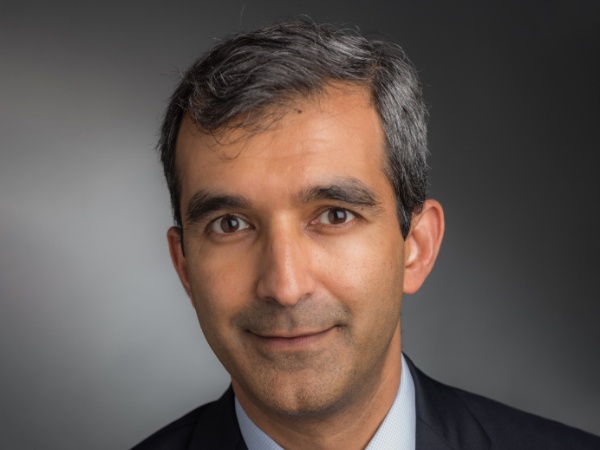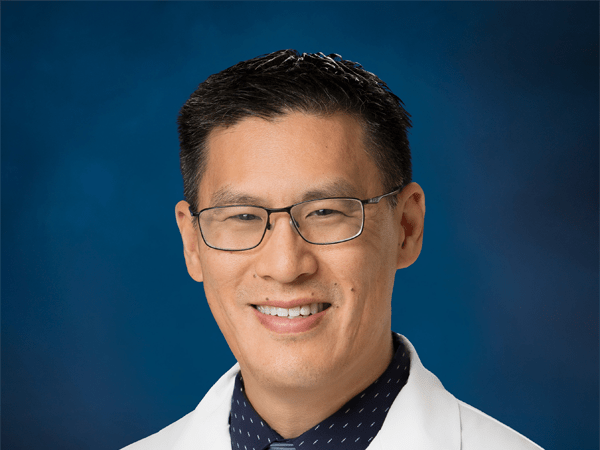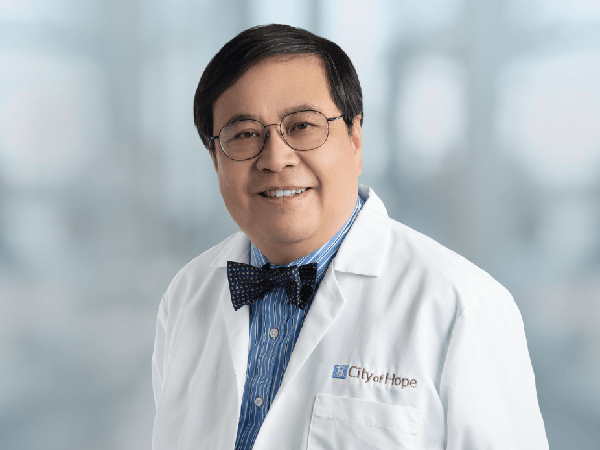

In 2013, the American College of Surgeons conducted an oral history interview with former ACS president Edward M. Copeland III.
Copeland spoke with archivist Jane Kenamore about his early childhood in McDonough, GA, his time as a trauma surgeon during the Vietnam War, his views on the future of surgical training and specialization, and his powerhouse roster of surgical mentors—Murray Copeland, Jonathan Rhoads, Isadore Schwaner Ravdin.
The video and transcript of this interview are now available on the Cancer History Project.


Oral history interview with Dr. Edward Copeland, Oct. 8, 2013
By American College of Surgeons, April 10, 2024
Excerpts of this interview follow:
On loving surgery:
Edward Copeland: This may sound strange, but surgery is a hobby. There aren’t very many professions where you can actually get paid for a hobby. Now, you help people, you get paid for it and all that kind of thing—teaching medical students, all that’s a hobby. So for us who have grown up as surgeons and grown up in the university atmosphere, we’re one of the lucky few who actually get paid for something we’d pay them to do.
On his uncle, Murray Copeland, who served as president of the American Cancer Society from 1964 to 1965:
Jane Kenamore: Tell us about your uncle. He was your earliest mentor, perhaps?
EC: He was the—well, my mother and father were my earliest mentors. But Uncle Murray [Copeland] was certainly around and he was president of the American Cancer Society and made pretty much a good name for himself. And he was the surgical oncologist. He did head and neck and all that. He even did radiation therapy and medical oncology when he came along because he graduated from Johns Hopkins, I think in 1927 or something of that sort. Maybe a little bit later. I know it, but I don’t have it firmly in my mind.
But when he was at Memorial Sloan Kettering Cancer Institute, he and a man named [Charles F.] Geshickter actually started doing radiation therapy in the basement of that institution. And then Geshickter was a pathologist and was at Georgetown where my uncle, who spent four years in the military working with a man named I.S. [Isadore Schwaner] Ravdin, as a matter of fact, who was at the University of Pennsylvania, which is why I went there. But so he was the real deal and I could appreciate that. And so I wanted to emulate him, if you will.
On trauma surgery in Vietnam:
JK: So according to your resume, you went to Vietnam when you finished your residency, is that right?
EC: I did. And that’s because you’re in the Berry plan—a man named Berry obviously set up a program. Do you know about the Berry plan?
JK: I do. I do.
This may sound strange, but surgery is a hobby. There aren’t very many professions where you can actually get paid for a hobby. Now, you help people, you get paid for it and all that kind of thing—teaching medical students, all that’s a hobby.
Edward Copeland
EC: So I was signed up for two years. When I got done, I was offered the opportunity to go to the Walter Reed Research Institute and offered the opportunity to go to Europe and offered the opportunity to go to the burn unit. But I’m left handed, so I didn’t want to spend a couple of years out of the surgical discipline.
I quite frankly was afraid I might lose my skills.
JK: So it makes that much of a difference if you’re left-handed?
EC: No, I thought it did. I didn’t know whether it did or not, but so I said, well, I’ll just go. So I went.
JK: Okay.
EC: And here I sit. I survived.
JK: Good. So how did that experience affect you professionally and personally?
EC: Well, I don’t think it affected me personally at all. Professionally, It was a great experience. University of Pennsylvania did no trauma. I think I once saw a nurse who cut her wrist. I’m very serious about that.
So, I had to learn how to do trauma surgery. Wartime trauma is a bit different than trauma in a stateside area, but I was stationed in Saigon and there was something like 200,000 people that we took care of—either employees of the federal governor or Vietnamese that worked for us or the military. So we had a lot of civilian trauma.
So I became fairly accomplished as a trauma surgeon and have taken trauma called and all those kinds of things throughout my career in various times. Although I’m a cancer surgeon, if you will. So, without any question, that was a great boon to my own personal development.
It also gave you a look, see into the rest of the world and to what maybe this country should and should not be doing. I think if we had had more people who’ve made decisions lately go to Vietnam, they wouldn’t have made the decisions they made, to tell you the truth. So, I can observe that, be frustrated by it—I can’t do anything about it, but it was certainly broadening from that point of view.
On the 80 hour workweek:
JK: In your presidential speech on the role of mentoring and creating a surgical way of life, you mentioned the 80 hour week, which apparently came in not too long before you assumed the presidency.
EC: It did.
JK: As compared with the old system that allowed many more work hours. So you trained under the old system, but you’re training, you were training others under the new system. How do you feel about the advantages and disadvantages of both of those?
EC: Surgery is a hobby. If someone told me I could only make model airplanes for 80 hours and I was used to making ’em for 120, I would tell ’em to go stick their head in the sand. It’s just that simple.
On studying at the University of Pennsylvania under Jonathan Rhoads, preeminent surgeon and pioneer of intravenous nutrition:
JK: Also, in your presidential speech, you quoted a letter from Dr. [Jonathan] Rhoads of the University of Pennsylvania to you upon your acceptance as a fellow.
EC: Actually acceptance as a Board of Regents.
JK: Board of Regents? Oh, I’m sorry.
EC: Yeah. When I became a Regent.
I’m left-handed—I’m very left-handed. And so I had to be sure I could actually use the tools or right-handed people with my left hand. The answer was yes, and I enjoyed it and I was good at it. And so from that moment forward, I knew where I needed to be.
Edward Copeland
JK: Oh, okay. “I continue to hope that the College will continue to enjoy a reputation as the advocate of the patient rather than the advocate of the surgical member.”
EC: I’m going to make an assumption. You’ve been listening to me.
JK: I have.
EC: Then that statement makes a lot of sense. Now, Dr. Rhoads was president of the College. He was president of the American Surgical Association. He was president of the American Cancer Society. He was our chairman at the University of Pennsylvania. He was a Quaker, a very nice man.
I once heard him say, “balderdash.” That’s the worst word I’ve ever heard him say. And he’s dead now, unfortunately. And Dr. Rhoads had a long memory. We didn’t think he remembered any of us, but he remembered all of us. And now that I’ve trained a lot of people, I remember all of them too.
Last night, somebody said, Ted, how do you remember all of this? I said, well, I lived it. So I remember a mole on the side of your face. It’s just there.
And I know Dr. Rhoads said to me when I was going to Florida from MD Anderson or from the University of Texas, same thing. I said, what do you think, Dr. Rhoads? And he said, “it’s a little out of the way.” Which it is, which means you’re not going to be a big deal in Europe and travel all over the country, but it’s six, five, I don’t really care.
On the Affordable Care Act, which had not yet come into effect:
JK: How do you feel about the Affordable Care Act? And I mean, we haven’t seen it in action yet.
EC: Well, we don’t know yet. I’d put it in place. See what happens. I mean, it’s that simple, obviously. I don’t see what the big deal is. Put it in place. If it works fine, doesn’t work, change it. That’s the beauty of democracy.
HMOs, everybody wanted HMOs. You knew they weren’t going to work. HMO, you’re paying a doctor to take care of a certain population of people, and he gets whatever’s left over. So he provides no care. He gets a lot of money. He provides a lot of care. He ain’t get any money, so that ain’t going to work. Here, ever, anywhere. So you know of any HMOs out there now? Yeah, Medicare has an HMO, but all the HMOs… They had a pretty good one here in Washington, by the way, that there’s some good ones. But HMOs disappeared. They’re gone because they didn’t work. It wasn’t going work. And we vote.
So if this healthcare doesn’t work, it’ll show itself quickly and we vote. We’ll vote for people who want to do something else. But by and large, I have always been an advocate of universal healthcare. Always.
This column features the latest posts to the Cancer History Project by our growing list of contributors.
The Cancer History Project is a free, web-based, collaborative resource intended to mark the 50th anniversary of the National Cancer Act and designed to continue in perpetuity. The objective is to assemble a robust collection of historical documents and make them freely available.
Access to the Cancer History Project is open to the public at CancerHistoryProject.com. You can also follow us on Twitter at @CancerHistProj, or follow our podcast.
Is your institution a contributor to the Cancer History Project? Eligible institutions include cancer centers, advocacy groups, professional societies, pharmaceutical companies, and key organizations in oncology.
To apply to become a contributor, please contact admin@cancerhistoryproject.com.










